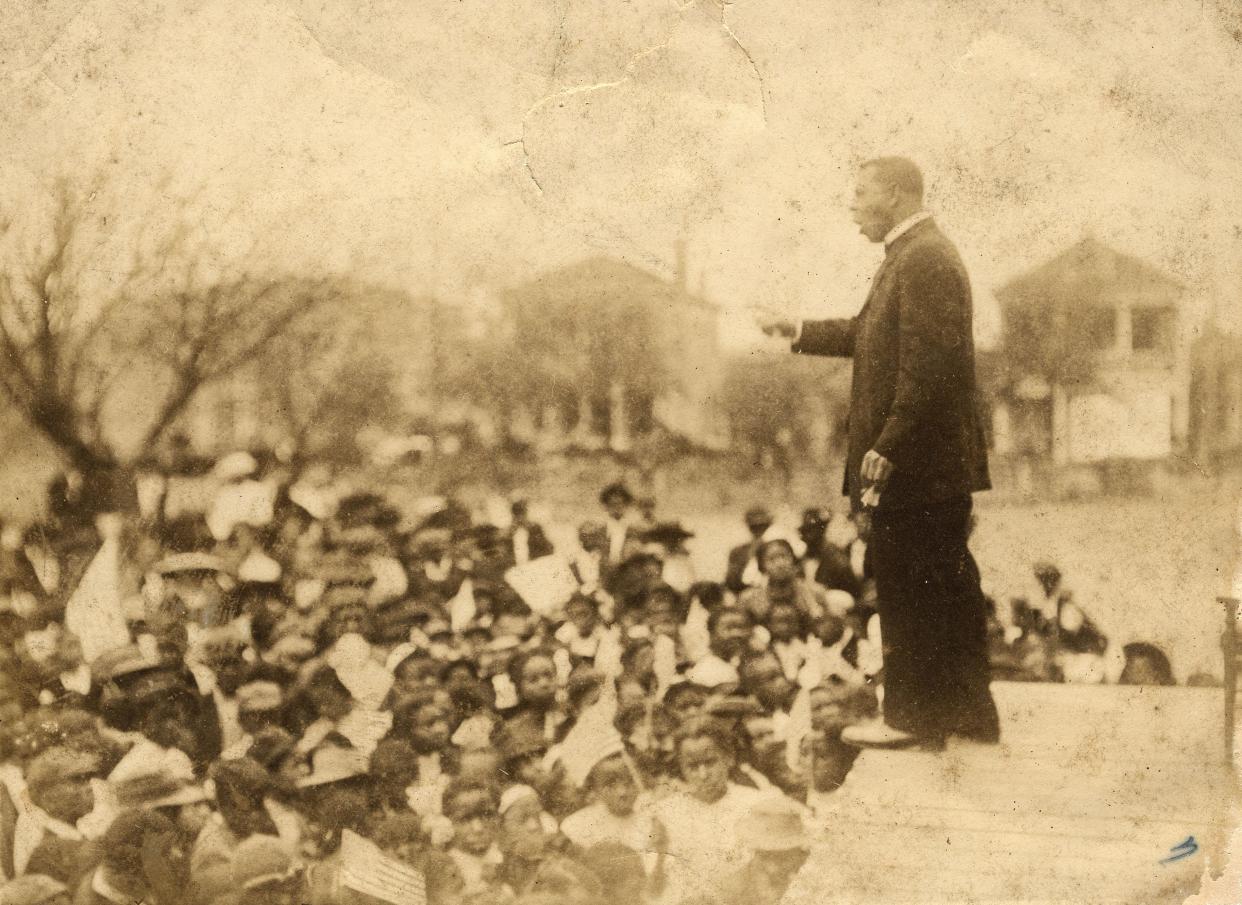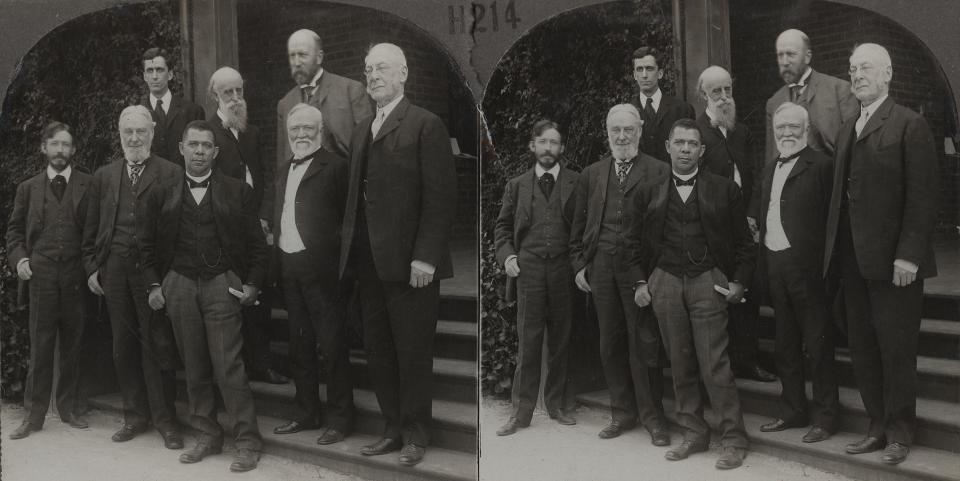Black History Month: Visit from Booker T. Washington bolsters entrepreneurship in Maury County

- Oops!Something went wrong.Please try again later.
Editor's Note: This story is part of an ongoing series during Black History Month about the Black individuals and organizations that helped to build Maury County.
In the late 19th and early 20th centuries, in addition to churches and schools, the institutional structure in the African-American community manifested itself in mutual benefit organizations. With limited access to economic and social channels, African Americans had no alternative other than to pool their resources and expertise to develop organizations within their own partially enclosed world.
Associations formed and partnered together to boost support of Black community events and economic endeavors.
In the early 1900s, community events such as the Maury County Colored Fair was held, which built pride and friendly competition. Black businesses also banded together to form the Negro Business League of Columbia, which promoted prosperity and innovation.
Services and businesses were designated to a certain part of town under the 1896 Plessy v. Ferguson Act, which allowed Black citizens to establish their own pocket communities on a "separate, but equal" basis. This included anything from restaurants to schools, businesses, churches and residential neighborhoods.

Business-building encouraged
The Negro Business League of Columbia was also established in March 1909, encouraging Black entrepreneurs to start their own businesses. The Columbia chapter was just one of several hundred chapters of the National Negro Business League (NNBL) founded by Booker T. Washington in Boston, Massachusetts in 1900.
Washington believed that solutions to the problem of racial discrimination were primarily economic, and that African-American entrepreneurship was vital. He founded the league to further the economic development of the African-American businesses in order to achieve social equality in American society. The mission of the NNBL, which predated the U.S. Chamber of Commerce by 12 years, was to enhance the commercial and economic prosperity in the African-American community.
The founding officers of the NNBL of Columbia were A. T. Morrell, President; H. T. Morrell, Assistant President; Albert Wright, Treasurer; Prof. John H. Kelly, Secretary; and Mary Bradshaw, Corresponding Secretary.
The business leaders in the several counties in Tennessee, including Maury County, invited Booker T. Washington to speak to both African American and white citizens. Washington and prominent African American leaders traveled, by special train, through Tennessee starting in Bristol and ending in Milan. The stated purpose of Washington’s visit was to “promote educational, commercial, and professional interest.”
In November 1909, Washington spoke for more than hour to a record crowd at the Opera House, which was located at the corner of West 7th and Garden Streets. Seated on the stage with Washington were members of the City Board of Education and W. M. Biddle, the Mayor of Columbia.
One reporter wrote that Washington said, “We of both races have suffered much by reason of the fact that the worst that occurs in the South is spread speedily in all parts of the world, while the best things which are constantly occurring in each community are seldom known outside of that community.”
Colored fair builds community pride
The Maury County Colored Fair Association was incorporated as the Maury County Colored Agricultural, Horticultural, Mechanical, and Live Stock Society, sponsoring its first county fair in 1872 and continued until at least 1907. The fair consisted of many activities, contests and competitive categories.
Some of the events included Best Man Driver, Best Woman Driver, and Best Hogs. The Maury County Colored Fair was held at what was known as the South Side Park, the old fair grounds, located between 15th and 17th Streets.
Some of the charter members included James Campbell, George Cook, Duncan Dale, Richard Foster, John Frierson, James Haddock, Cap Hardeman, Thomas Irwin, Creed Taylor, Rufus Wilkes, Solomon Wilkins, Washington Webster, Riley Witherspoon and Thomas Woodson.
African American leaders and citizens thrived under the associations that brought them together to give back to the community and contributed to building a place for the next generation.
Jo Ann McClellan is Maury County historian and president of the African American Heritage Society of Maury County.
This article originally appeared on The Daily Herald: Black History Month: Visit from Booker T. Washington bolsters entrepreneurship in Maury County

